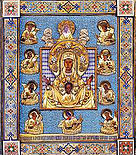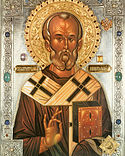Can the All-Diaspora Council have judicial functions?
In accordance with the “Regulations of the ROCA,” the Metropolitan is subject to trial by the Council of Bishops, chaired by the eldest hierarch. Moreover, it is required that the number of bishops accusing the Metropolitan consist of no less than 1/3 of the membership of Council of Bishops. In the case of the latter, it is unclear from where this requirement is derived. It is not based on the Holy Canons but in fact contradicts the canons. For example: “But if any Bishop or Clergyman has a dispute with the Metropolitan of the same province, let him apply either to the Exarch of the diocese or to the throne of the imperial capital Constantinople, and let it be tried before him.” (4th Ecumenical Council, 9th rule). In other words, only one bishop or cleric is needed to demand the trial of a Metropolitan before a higher court. It must be said that we find ourselves in extraordinary circumstances. There are no canonical directives to guide our actions in such a situation. It is obvious that the ROCA Council of Bishops, the majority of whom are the Metropolitan’s supporters, cannot deliver an objective decision on the canonical violations of Metropolitan Agafangel.
According to the Regulations on Administration of the Russian Church, “In the Russian Orthodox Church, the highest authority – legislative, administrative, judicial and executive – belongs to the All-Russia Council, which will be convened periodically at specified intervals and consist of bishops, clergy and laity…the Patriarch, together with church administrative bodies, are accountable to the All-Russia Council.”
The All-Russia Council, composed of bishops, clergy and laity, is equivalent in the ROCA to the All-Diaspora Council, which will also include clergy and laity. The decisions of the All-Russia Council, as well as the All-Diaspora Council, go into effect after they are confirmed by the Bishops’ Conference.
Taking all of the above into account, it is clear that the All-Diaspora Council has the right to judge the case of Metropolitan Agafangel, and that its verdict will then be confirmed by the Bishops’ Conference, which will consist of bishops not involved in the canonical violations of the Synod. Metropolitan Agafangel was elected at an All-Diaspora Council and now an All-Diaspora Council has the right to call the Metropolitan to account for his actions.

